Tag: Stevens (Isaac I.)
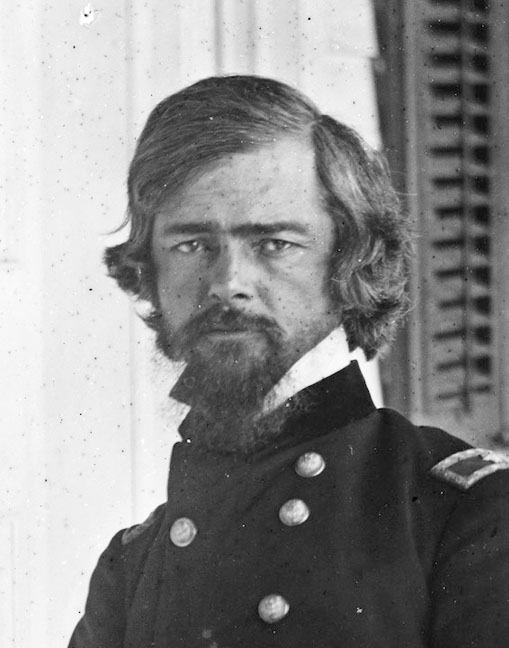 Wikipedia says: Isaac Ingalls Stevens (March 25, 1818 – September 1, 1862) was an American career Army officer and politician, who served as governor of the Territory of Washington from 1853 to 1857, and later as its delegate to the United States House of Representatives. During the American Civil War, he held several Union commands. He was killed at the Battle of Chantilly, while at the head of his men and carrying the fallen colors of one of his regiments against Confederate positions. According to one account, at the hour of his death Stevens was being considered by President Abraham Lincoln for appointment to command the Army of Virginia. He was posthumously advanced to the rank of Major General. Several schools, towns, counties, and lakes are named in his honor.
Wikipedia says: Isaac Ingalls Stevens (March 25, 1818 – September 1, 1862) was an American career Army officer and politician, who served as governor of the Territory of Washington from 1853 to 1857, and later as its delegate to the United States House of Representatives. During the American Civil War, he held several Union commands. He was killed at the Battle of Chantilly, while at the head of his men and carrying the fallen colors of one of his regiments against Confederate positions. According to one account, at the hour of his death Stevens was being considered by President Abraham Lincoln for appointment to command the Army of Virginia. He was posthumously advanced to the rank of Major General. Several schools, towns, counties, and lakes are named in his honor.
Descended from early American settlers in New England, Stevens – a man who stood just 5 ft 3 in (1.60 m) tall – overcame a troubled childhood and personal setbacks to graduate at the top of his class at West Point before embarking on a successful military career. He was a controversial and polarizing figure as governor of the Washington Territory, where he was both praised and condemned. He was described by one historian as the subject of more reflection and study than almost the rest of the territory’s 19th-century history combined. Stevens’ marathon diplomacy with Native American tribes sought to avoid military conflict in Washington; however, when the Yakama War broke out as Native Americans resisted European encroachment, he prosecuted it mercilessly. His decision to rule by martial law, jail judges who opposed him, and raise a de facto personal army led to his conviction for contempt of court, for which he famously pardoned himself, and a rebuke from the President of the United States. Nonetheless, his uncompromising decisiveness in the face of crisis was both applauded by his supporters and noted by historians.
Isaac Stevens was the father of Hazard Stevens, the hero of the Battle of Suffolk and one of the first men to summit Mount Rainier.
…After the Civil War began in 1861, and following the Union defeat at the First Battle of Bull Run, Stevens was commissioned in the Army again. He was appointed as Colonel of the 79th New York Volunteers, known as the “Cameron Highlanders.” He was promoted to a brigadier general on September 28, 1861, and fought at Port Royal. He led the Second Brigade of the Expeditionary Forces sent to attack the Sea Islands off the coast of South Carolina. He led a division at the Battle of Secessionville, where he led an attack on Fort Lamar, in which 25% of his men were casualties.
Stevens was transferred with his IX Corps division to Virginia to serve under Major General John Pope in the Northern Virginia Campaign and the Second Battle of Bull Run. He was killed in action at the Battle of Chantilly on September 1, 1862 after picking up the fallen regimental colors of his old regiment, shouting “Highlanders, my Highlanders, follow your general!” Charging with his troops while carrying the banner of Saint Andrew’s Cross, Stevens was struck in the temple by a bullet and died instantly.
He was buried in Newport, Rhode Island at Island Cemetery. In March 1863, he was posthumously promoted to major general, backdated to July 18, 1862.
Stevens had married. His son, Hazard Stevens, had become a career officer and was also injured in the Battle of Chantilly. He survived and eventually became a general in the U.S. Army and an author. Together with P. B. Van Trump, he participated in the first documented ascent of Mount Rainier in Washington State.
Showing all 6 resultsSorted by latest
-
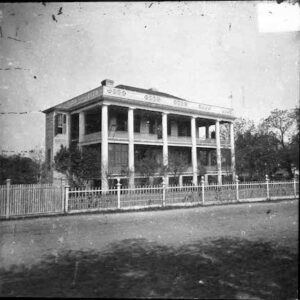
Image ID: AYIR
$0.99 -

Image ID: AJMW
$4.99 – $5.99 This product has multiple variants. The options may be chosen on the product page -
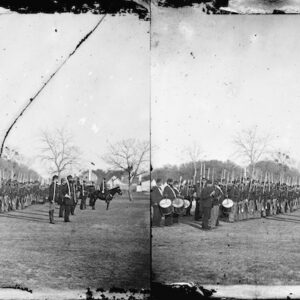
Image ID: AJMQ
$6.99 -
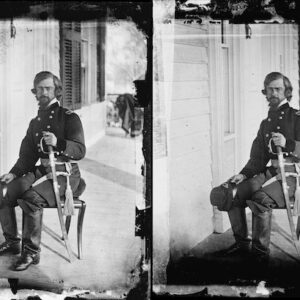
Image ID: AJMX
$6.99 -

Image ID: AJWR
$5.99 This product has multiple variants. The options may be chosen on the product page -
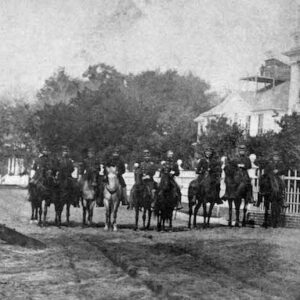
Image ID: AXSO
$0.99